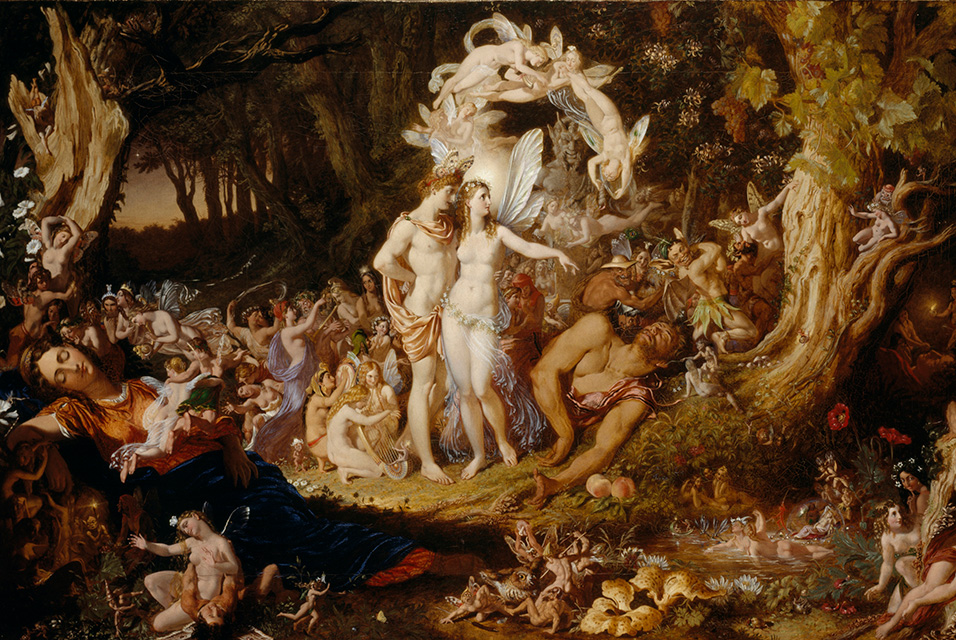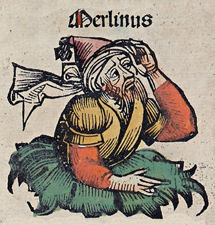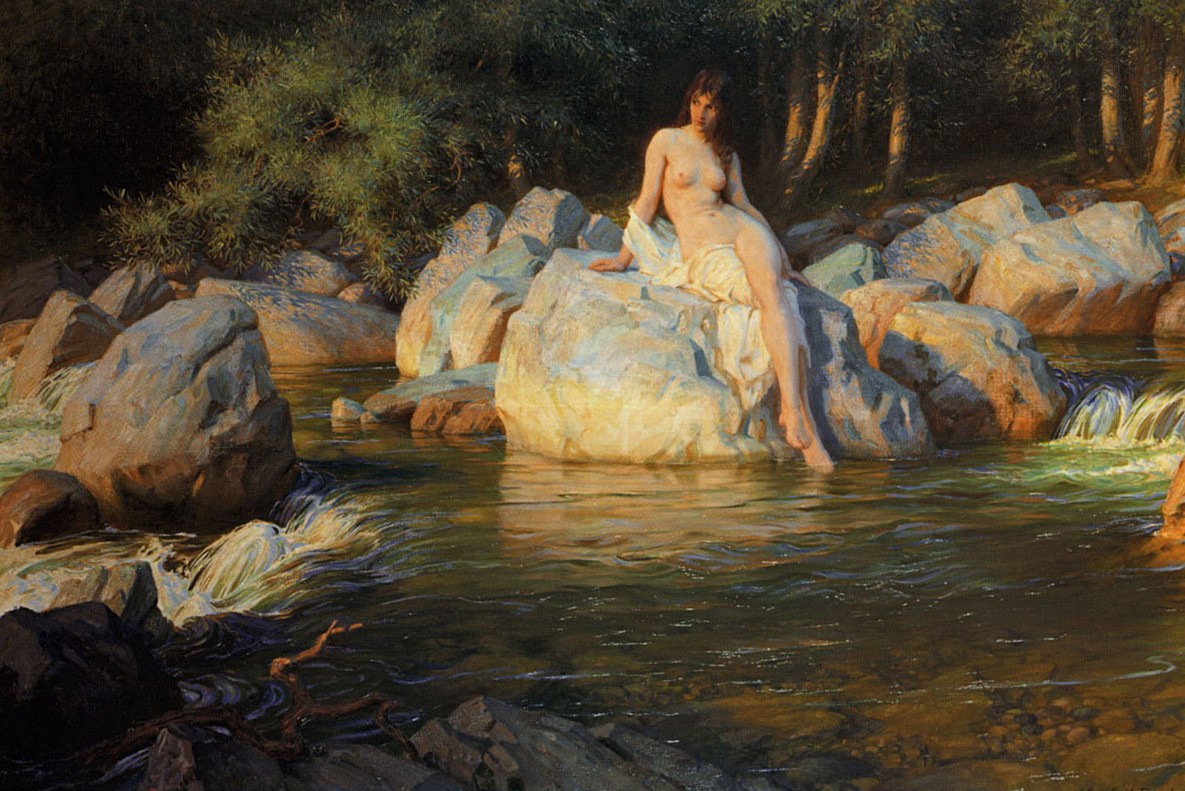|
Last Guardian Of Everness
''Last Guardian of Everness'' is a fantasy novel by John C. Wright (the author's first such novel, having been written before ''The Golden Age''). It has a sequel, '' Mists of Everness''. Overview The novel tells the tale of Raven, son of Raven, who bargains with a necromancer, Koschei the Deathless, to save the life of his pretty young wife Wendy, who is in the terminal ward of the hospital. The price is that Raven must kill an innocent stranger. The stranger selected is Galen Waylock, the youngest and last watchman of an order of guardians protecting mankind from a supernatural invasion through the Gates of Greater Slumber. The conceit is that man has been separated from the world of dreams in order to preserve him: the fairies and gods remembered in myth yearn to re-establish their old rule. The story draws on varied mythological sources. Koschei (or Koschey) the Deathless is from Russian folk tales; the Selkie are from Irish lore, the Kelpie, Scottish; Oberon, Titania, a ... [...More Info...] [...Related Items...] OR: [Wikipedia] [Google] [Baidu] |
John C
John is a common English name and surname: * John (given name) * John (surname) John may also refer to: New Testament Works * Gospel of John, a title often shortened to John * First Epistle of John, often shortened to 1 John * Second Epistle of John, often shortened to 2 John * Third Epistle of John, often shortened to 3 John People * John the Baptist (died c. AD 30), regarded as a prophet and the forerunner of Jesus Christ * John the Apostle (lived c. AD 30), one of the twelve apostles of Jesus * John the Evangelist, assigned author of the Fourth Gospel, once identified with the Apostle * John of Patmos, also known as John the Divine or John the Revelator, the author of the Book of Revelation, once identified with the Apostle * John the Presbyter, a figure either identified with or distinguished from the Apostle, the Evangelist and John of Patmos Other people with the given name Religious figures * John, father of Andrew the Apostle and Saint Peter * ... [...More Info...] [...Related Items...] OR: [Wikipedia] [Google] [Baidu] |
Oberon (Fairy King)
Oberon () is a king of the fairies in medieval and Renaissance literature. He is best known as a character in William Shakespeare's play ''A Midsummer Night's Dream'', in which he is King of the Fairies and spouse of Titania, Queen of the Fairies. Etymology Oberon is derived from Alberich (from Old High German ''alb-'' "elf" and ''-rîh-'', "ruler", "king"), the name of a dwarf from Germanic mythology. In the ''Nibelungenlied'', a Burgundian poem written around the turn of the 13th century, Alberich guards the treasure of the Nibelungen, but is overcome by Siegfried. In Old French, the name Alberich evolved into ''Alberon'' and then ''Auberon'' and ultimately into '' Aubrey''. French heroic song The name Oberon (as Auberon) is first attested to in the early 13th century entitled , wherein it refers to an elven man of the forest encountered by the eponymous hero. Huon, son of Seguin count of Bordeaux, passed through the forest inhabited by Oberon. He was warned by a hermi ... [...More Info...] [...Related Items...] OR: [Wikipedia] [Google] [Baidu] |
American Fantasy Novels
American(s) may refer to: * American, something of, from, or related to the United States of America, commonly known as the "United States" or "America" ** Americans, citizens and nationals of the United States of America ** American ancestry, people who self-identify their ancestry as "American" ** American English, the set of varieties of the English language native to the United States ** Native Americans in the United States, indigenous peoples of the United States * American, something of, from, or related to the Americas, also known as "America" ** Indigenous peoples of the Americas * American (word), for analysis and history of the meanings in various contexts Organizations * American Airlines, U.S.-based airline headquartered in Fort Worth, Texas * American Athletic Conference, an American college athletic conference * American Recordings (record label), a record label previously known as Def American * American University, in Washington, D.C. Sports teams Soccer ... [...More Info...] [...Related Items...] OR: [Wikipedia] [Google] [Baidu] |
Apollo
Apollo, grc, Ἀπόλλωνος, Apóllōnos, label=genitive , ; , grc-dor, Ἀπέλλων, Apéllōn, ; grc, Ἀπείλων, Apeílōn, label=Arcadocypriot Greek, ; grc-aeo, Ἄπλουν, Áploun, la, Apollō, la, Apollinis, label=genitive, , ; , is one of the Twelve Olympians, Olympian deities in Ancient Greek religion, classical Greek and Ancient Roman religion, Roman religion and Greek mythology, Greek and Roman mythology. The national divinity of the Greeks, Apollo has been recognized as a god of archery, music and dance, truth and prophecy, healing and diseases, the Sun and light, poetry, and more. One of the most important and complex of the Greek gods, he is the son of Zeus and Leto, and the twin brother of Artemis, goddess of the hunt. Seen as the most beautiful god and the ideal of the ''kouros'' (ephebe, or a beardless, athletic youth), Apollo is considered to be the most Greek of all the gods. Apollo is known in Greek-influenced Etruscan mythology as ' ... [...More Info...] [...Related Items...] OR: [Wikipedia] [Google] [Baidu] |
Hyperion (mythology)
In Greek mythology, Hyperion (; grc-gre, Ὑπερίων, 'he who goes before') was one of the twelve Titan children of Gaia (the Earth) and Uranus (the Sky). With his sister, the Titaness Theia, Hyperion fathered Helios (the Sun), Selene (the Moon) and Eos (the Dawn). Hyperion was, along with his son Helios, a personification of the sun, with the two sometimes identified. John Keats's abandoned epic poem ''Hyperion'' is among the literary works that feature the figure. Etymology "Hyperion" means "he that walks on high" or simply "the god above", often joined with "Helios". There is a possible attestation of his name in Linear B (Mycenaean Greek) in the lacunose form '']pe-rjo- ' (Linear B: Knossos.html" ;"title=", found on the Knossos">KN E 842 tablet (reconstructed ''[upe-rjo-[ne]'') though it has been suggested that the name actually reads "Apollo" (''[a]-pe-rjo-[ne]''). Mythology Hyperion is one of the twelve or thirteen Titans, the children of Gaia and Uranus. ... [...More Info...] [...Related Items...] OR: [Wikipedia] [Google] [Baidu] |
Uriel
Uriel or Auriel ( he, אוּרִיאֵל ''ʾŪrīʾēl'', " El/God is my flame"; el, Οὐριήλ ''Oúriēl''; cop, ⲟⲩⲣⲓⲏⲗ ''Ouriēl''; it, Uriele; Geʽez and Amharic: or ) is the name of one of the archangels who is mentioned in the post-exilic rabbinic tradition and in certain Christian traditions. He is well known in the Russian Orthodox tradition and in folk Catholicism (in both of which he is considered to be one of the seven major archangels) and recognized in the Anglican Church as the fourth archangel. He is also well known in European esoteric medieval literature. Uriel is also known as a master of knowledge and archangel of wisdom. In apocryphal, kabbalistic, and occult works, Uriel/Auriel has been equated (or confused) with Urial, Nuriel, Uryan, Jeremiel, Vretil, Sariel, Suriel, Puruel, Phanuel, Jacob, Azrael, and Raphael. In the Secret Book of John, an early Gnostic work, Uriel is placed in control over the demons who help Yaldabaoth ... [...More Info...] [...Related Items...] OR: [Wikipedia] [Google] [Baidu] |
Bergelmir
Bergelmir ( ; Old Norse: ) is a jötunn in Norse mythology. Name The Old Norse name ''Bergelmir'' has been variously translated as 'bear-yeller', 'mountain-yeller', or 'bare-yeller'. According to linguist Jan de Vries, the name should be read as ''ber-gelmir'' ('who roars like a bear') rather than ''berg-gelmir'' ('who roars in the mountains'). Attestations In ''Vafþrúðnismál'' (The Lay of Vafþrúðnir), Bergelmir is portrayed as the son of Þrúðgelmir and the grandson of the first Aurgelmir (Ymir). When Odin asks Vafthrúdnir who is the oldest among the æsir and the jötnar, the wise responds that: In the same poem, Odin then asks Vafthrúdnir about the monstrous birth of the offspring of Aurgelmir, and Vafthrúdnir responds: In ''Gylfaginning'' (The Beguiling of Gylfi), while the blood of Ymir (Aurgelmir) is flooding the earth after the sons of Borr (Odin, Vili, and Vé) have killed him, Bergelmir is likewise pictured as escaping on a lúðr with his wife ... [...More Info...] [...Related Items...] OR: [Wikipedia] [Google] [Baidu] |
Merlin (wizard)
Merlin ( cy, Myrddin, kw, Marzhin, br, Merzhin) is a mythical figure prominently featured in the legend of King Arthur and best known as a mage, with several other main roles. His usual depiction, based on an amalgamation of historic and legendary figures, was introduced by the 12th-century British author Geoffrey of Monmouth. It is believed that Geoffrey combined earlier tales of Myrddin and Ambrosius, two legendary Briton prophets with no connection to Arthur, to form the composite figure called Merlinus Ambrosius ( cy, Myrddin Emrys, br, Merzhin Ambroaz). Geoffrey's rendering of the character became immediately popular, especially in Wales. Later writers in France and elsewhere expanded the account to produce a fuller image, creating one of the most important figures in the imagination and literature of the Middle Ages. Merlin's traditional biography casts him as an often-mad being born of a mortal woman, sired by an incubus, from whom he inherits his supernatural ... [...More Info...] [...Related Items...] OR: [Wikipedia] [Google] [Baidu] |
Titania (Fairy Queen)
Titania () is a character in William Shakespeare's 1595–1596 play ''A Midsummer Night's Dream''. In the play, she is the Queen of the fairies and wife of the Fairy King, Oberon. Due to Shakespeare's influence, later fiction has often used the name "Titania" for fairy queen characters. Origins In traditional folklore, the fairy queen has no name. As such, Shakespeare took the name "Titania" from Ovid's ''Metamorphoses'', where it is an appellation given to the daughters of Titans. Role in the play Shakespeare's Titania has a major role to play in one of ''A Midsummer Night's Dream's'' subplots. Titania is a very proud creature and as much of a force to contend with as her husband, Oberon. She and Oberon are engaged in a marital quarrel over which of them should have the keeping of an Indian changeling boy. It is this quarrel which drives the plot, creating the mix-ups and confusion of the other characters in the play. Due to an enchantment cast by Oberon's servant Puck, ... [...More Info...] [...Related Items...] OR: [Wikipedia] [Google] [Baidu] |
Kelpie
A kelpie, or water kelpie (Scottish Gaelic: ''Each-Uisge''), is a shape-shifting spirit inhabiting lochs in Scottish folklore. It is usually described as a black horse-like creature, able to adopt human form. Some accounts state that the kelpie retains its hooves when appearing as a human, leading to its association with the Christian idea of Satan as alluded to by Robert Burns in his 1786 poem "Address to the Devil". Almost every sizeable body of water in Scotland has an associated kelpie story, but the most extensively reported is that of Loch Ness. The kelpie has counterparts across the world, such as the Germanic nixie, the wihwin of South America and the Australian bunyip. The origins of narratives about the creature are unclear but the practical purpose of keeping children away from dangerous stretches of water and warning young women to be wary of handsome strangers has been noted in secondary literature. Kelpies have been portrayed in their various forms in art and ... [...More Info...] [...Related Items...] OR: [Wikipedia] [Google] [Baidu] |
English Language
English is a West Germanic language of the Indo-European language family, with its earliest forms spoken by the inhabitants of early medieval England. It is named after the Angles, one of the ancient Germanic peoples that migrated to the island of Great Britain. Existing on a dialect continuum with Scots, and then closest related to the Low Saxon and Frisian languages, English is genealogically West Germanic. However, its vocabulary is also distinctively influenced by dialects of France (about 29% of Modern English words) and Latin (also about 29%), plus some grammar and a small amount of core vocabulary influenced by Old Norse (a North Germanic language). Speakers of English are called Anglophones. The earliest forms of English, collectively known as Old English, evolved from a group of West Germanic ( Ingvaeonic) dialects brought to Great Britain by Anglo-Saxon settlers in the 5th century and further mutated by Norse-speaking Viking settlers starting in ... [...More Info...] [...Related Items...] OR: [Wikipedia] [Google] [Baidu] |
Selkie
In Celtic and Norse mythology, selkies (also spelled ', ', ') or selkie folk ( sco, selkie fowk) meaning 'seal folk' are mythological beings capable of therianthropy, changing from seal to human form by shedding their skin. They are found in folktales and mythology originating from the Northern Isles of Scotland. The folktales frequently revolve around female selkies being coerced into relationships with humans by someone stealing and hiding their sealskin, thus exhibiting the tale motif of the swan maiden type. There are counterparts in Faroese and Icelandic folklore that speak of seal-women and seal-skin. Terminology The Scots language word ' is diminutive for ' which strictly speaking means 'grey seal' ('' Halichoerus grypus''). Alternate spellings for the diminutive include: ', ', ', ', ', ', ', etc. The term ''selkie'' according to Alan Bruford should be treated as meaning any seal with or without the implication of transformation into human form. W. Traill ... [...More Info...] [...Related Items...] OR: [Wikipedia] [Google] [Baidu] |


.jpg)


